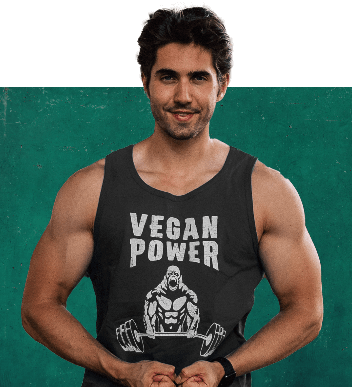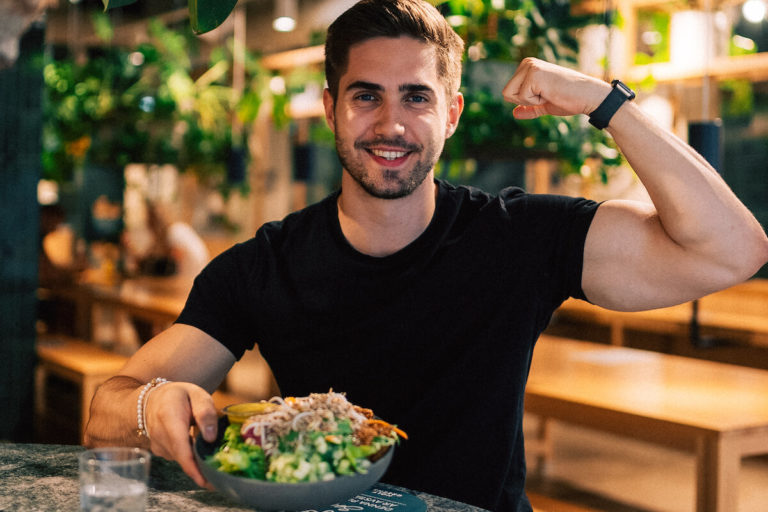Main Takeaways
- Vegan diet deficiencies may occur if not enough attention is paid to proper nutrition.
- The key to avoiding deficiencies is to consume a range of foods and plan meals.
- Supplements can also be beneficial in providing key nutrients, such as calcium, zinc, vitamin B12, and iron.
- Deficiencies can be detected through symptoms such as fatigue, depression, and numbness, and regular check-ups with doctors are recommended.
Vegan diets are full of delicious plant-based foods that carry many beneficial nutrients; however, there can be concerns regarding vegan diet deficiencies.
The plant-based lifestyle makes many people thrive and live healthy and fulfilling lives, but for some, it may not provide sufficient nutrition. To thrive on a vegan diet, you need to consume a range of foods and plan your meals thoroughly.
However, preventing nutrient deficiencies in a vegan diet is not just possible, but also easy if done the right way. The key is to be aware of the nutrients that may be lacking in a vegan diet and to consider taking supplements or incorporating specific foods to ensure sufficient intake. By understanding your nutritional needs and making informed choices, you can successfully follow a vegan diet while meeting all your nutritional requirements.
What is a diet deficiency?
Diet deficiency means that a person does not receive all of the essential nutrients they need. Malnutrition can cause many symptoms including fatigue and disease. Deficiencies can be a concern in any diet. If people only eat processed junk and pay no attention to preparing a range of nutritious meals, it is easy to end up lacking vitamins and minerals.
Do vegans have some deficiencies?
The scientific body of evidence has shown that a vegan diet can lead to deficiencies in certain micronutrients. These include vitamin B12, zinc, calcium, and selenium levels. While it is vital for anyone to start a vegan diet with caution, there is no reason to fear this lifestyle change.
With a vegan diet, all animal-based products are avoided, which can make it easy to miss nutrients. Animal products can cause more harm than good; however, they can also be a source of nutrients that are not always easily obtained from plant-based foods. Vegan diet deficiencies can occur when people jump into this lifestyle lacking essential knowledge.
The results presented in this article by the European Journal of Nutrition showed that vegans receive low amounts of calcium and zinc. This study further proves that a well-balanced diet incorporating supplements and fortified products is key to meeting nutritional requirements. This is true for anyone, whether they consume vegan, vegetarian, or omnivorous diets.
A study from the European Journal of Nutrition observed veganism in children and found that this diet provided the correct amounts of most micronutrients. The vegan diet also provided preferable fat quality compared to the omnivorous diet. This study addressed the importance of focusing on certain nutrients in vegan or vegetarian children, including vitamin B2, vitamin B12, calcium, iron, vitamin D, iodine, and DHA, regardless of diet.
Critical nutrients to potentially worry about the vegan diet include the following:
- Vitamin B2
- Vitamin B3
- Vitamin B12
- Omega 3
- Protein
- Calcium
- Iron
- Iodine
Eating fortified foods and consuming supplements will ensure that you receive plenty of these nutrients. Some supplements can provide these nutrients all in one, but consuming a range of plant-based foods will also be beneficial.
Supplementing creatine can be beneficial as well, not only to help build and sustain muscles, but it may also help with cognitive function.
How can vegan deficiencies be detected?
Symptoms associated with diet deficiencies differ depending on the nutrients that are missing. Each nutrient influences a different part of the body, resulting in unique symptoms of deficiency. For example, omega-3s affect heart, brain, and skin health, whereas calcium helps with bone health.
The symptoms of vitamin B12 deficiency include depression, confusion, weakness, and fatigue. Similar symptoms were associated with insufficient iodine and iron intake. A lack of calcium can cause numbness in the fingers and convulsions.
The most reliable way to see if you are deficient in any vitamins or minerals is to consult a doctor and get blood work done. Getting semi-annual check-ups to see if you are lacking nutrients provides information will provide you with valuable information about your health and nutrient status.
Plant-based alternatives to help you avoid deficiencies on a vegan diet
In most cases, finding plant-based foods that contain the required nutrients is not difficult. The options are out there, but when switching to an entirely new diet, it may be difficult to think about them.
If you are a vegan diet beginner and you do not know how to build your vegan meals to obtain all the important nutrients, this chart will help simplify the process. Keeping this chart in mind will make it easier and fun to create nutritious plant-based meals.
| Possibly deficient nutrient | Deficiency Risk | Examples of vegan foods supplying the deficient nutrient |
| Protein | Medium | Vegan Protein Powder, seitan, veggie burger patties, tofu, tempeh, beans, broccoli, greens, nuts, seeds, nut butter, peas, lentils, chickpeas, potatoes, spinach, quinoa, |
| Vitamin B2 (Riboflavin) | Medium | Almonds, kale, dried seaweed, seeds, nuts, soybeans, avocado, squash, oats, asparagus, peas |
| Creatine | High | Supplements |
| Vitamin B3 (Niacin) | Medium | Brown rice, nuts, seeds, bananas, legumes, |
| Vitamin B12 | High | Nutritional yeast, mushrooms, some cereals, some algae, fortified foods |
| Vitamin D | Medium | Fortified plant-based milks, mushrooms |
| Omega-3 | High | Algae, algae-supplement, nuts, seeds, plant oils, edamame |
| Iodine | Medium | Soy milk, iodized salt, cranberries, prunes, potatoes, seaweed |
| Zinc | High | Beans, nuts, seeds, chickpeas, lentils, quinoa |
| Calcium | High | Broccoli, beans, brussels sprouts, chard, collards, peas, kale |
| Potassium | Medium | Beans, potatoes, squash, avocado, bananas, broccoli, spinach, dried fruit |
| Selenium | Medium | Brazil nuts, brown rice, beans, whole grains |
| Iron* | High | Nuts, beans, lentils, peas, spinach |
| Vitamin A | Very Low | Kale, cantaloupe, sweet potatoes, carrots, squash, spinach, red peppers |
| Vitamin B1 | Very Low | Squash, whole grains, seeds, nuts, peas, beans, lentils |
| Vitamin B6 | Very Low | Nutritional yeast, squash, quinoa, avocados, nuts, seeds |
| Vitamin C | Very Low | Parsley, kale, broccoli, lemons, kiwis, bell pepper, red pepper, citrus fruits, berries, cabbage, spinach, tomatoes, potatoes |
| Vitamin E | Very Low | Seeds, nuts, pumpkin, avocado, butternut squash, tomatoes, mango, kale, spinach, broccoli, chickpeas |
| Phosphorus | Very Low | Nuts, whole grains, legumes |
| Magnesium | Very Low | Nuts, seeds, spinach, tofu, lentils |
| Copper | Very Low | Nuts, seeds, potatoes, peas, beans, whole grains |
| Folate | Very Low | Quinoa, mango, avocado, seeds, oranges, okra |
As you can see, the list of nutritious plant-based foods is long. Focusing on the nutrients that vegans have a higher risk of falling short of, such as Omega 3, iron, vitamin B12, creatine, zinc, and calcium.
Many of these plant-based foods contain multiple vitamins and minerals, making it less daunting to avoid vegan diet deficiencies than you might think. Consuming a range of plant-based foods is key to thriving on a vegan diet.
The bottom line with vegan diet deficiencies
Although it is possible to experience deficiencies in a vegan diet, careful planning and supplementation can help prevent these issues. It is important to familiarize themselves with nutrients that may be lacking in a vegan diet and plant-based sources of these nutrients.
A vegan lifestyle can be healthy and sustainable with the appropriate knowledge and resources.
If you are concerned about meeting your nutritional needs on a vegan diet, you may want to consult a nutrition expert and consider coaching.
Do not let the fear of deficiencies discourage you from considering a vegan diet, as long as you are proactive in ensuring you meet your nutritional needs.







